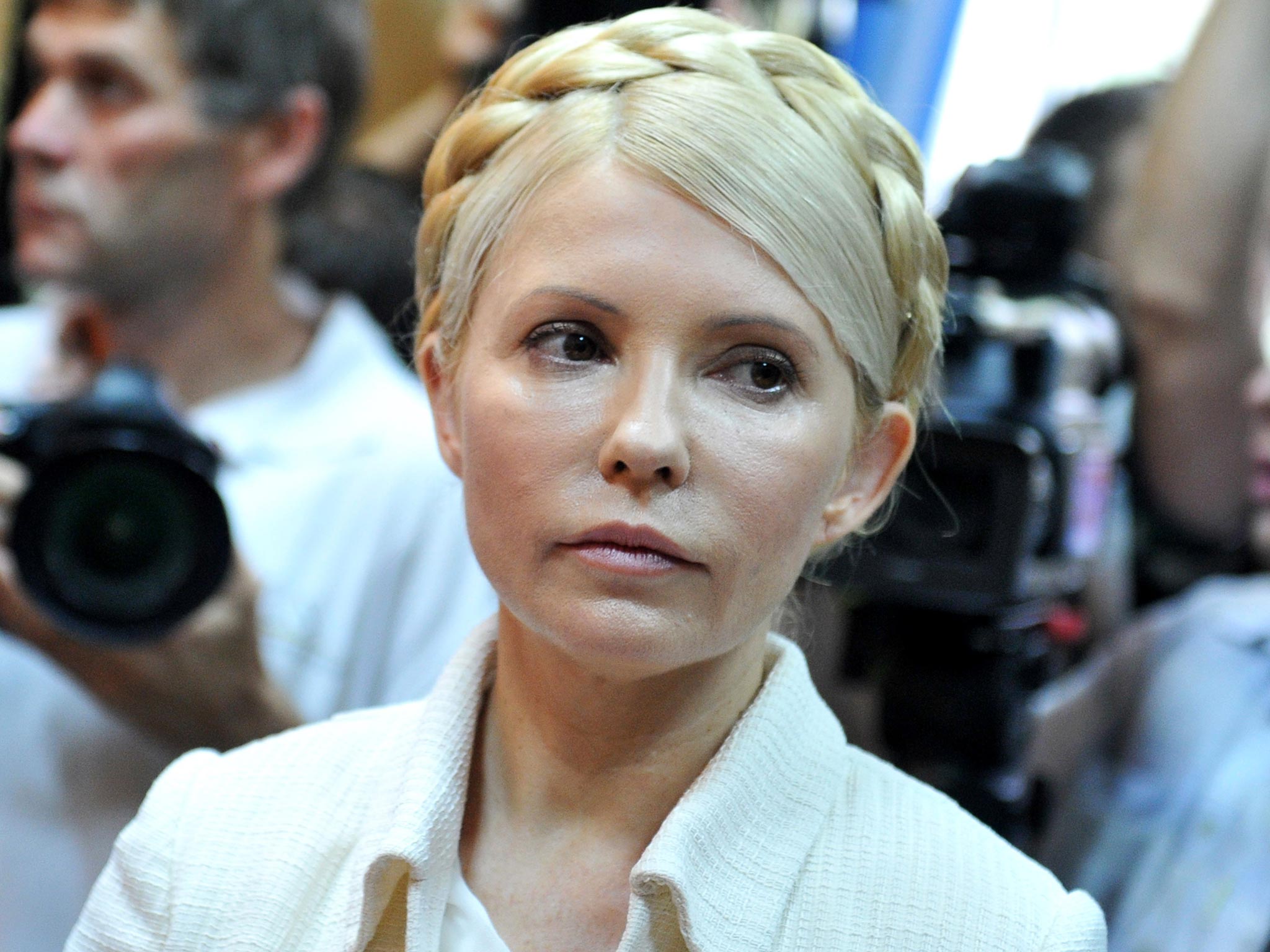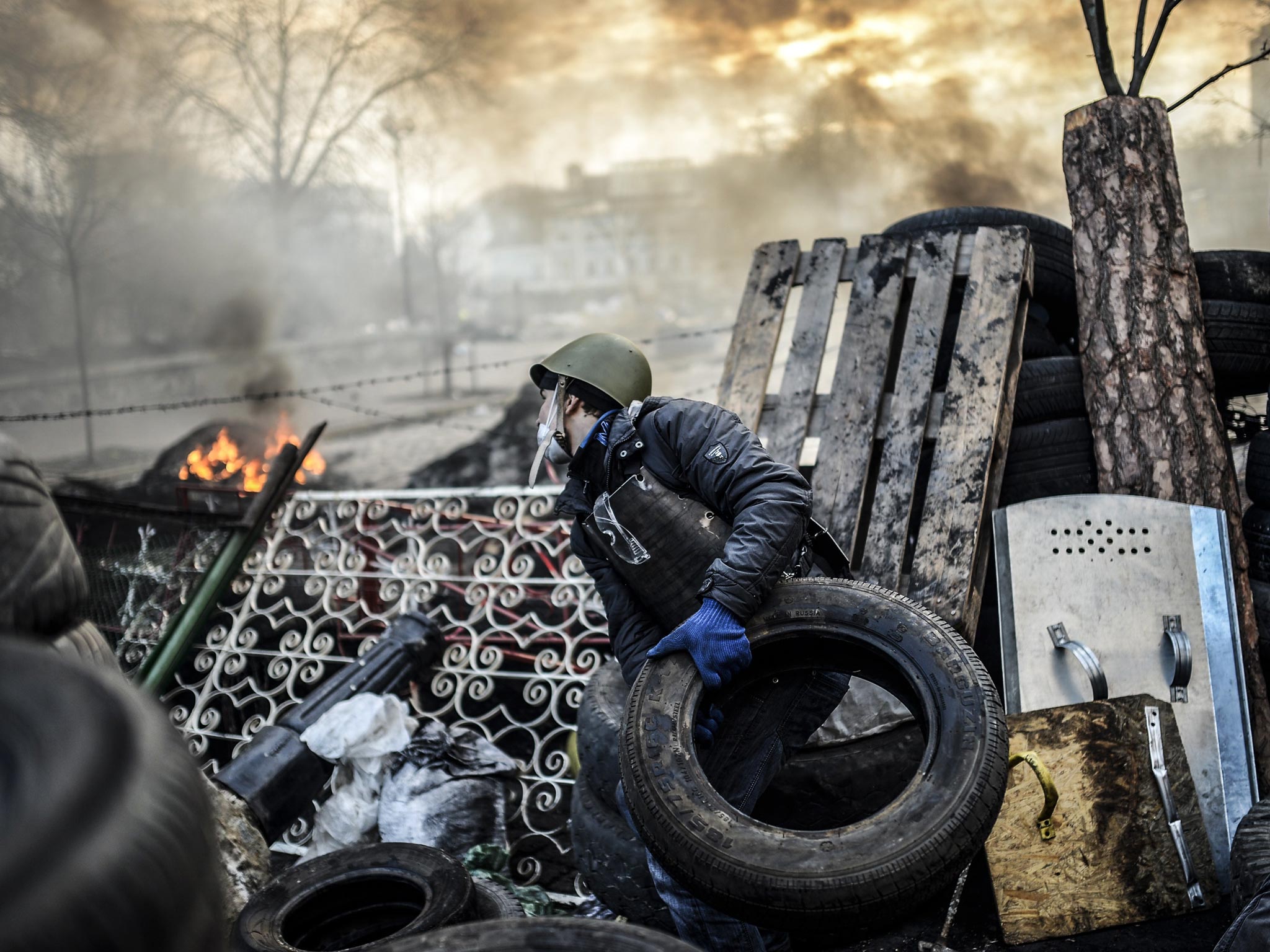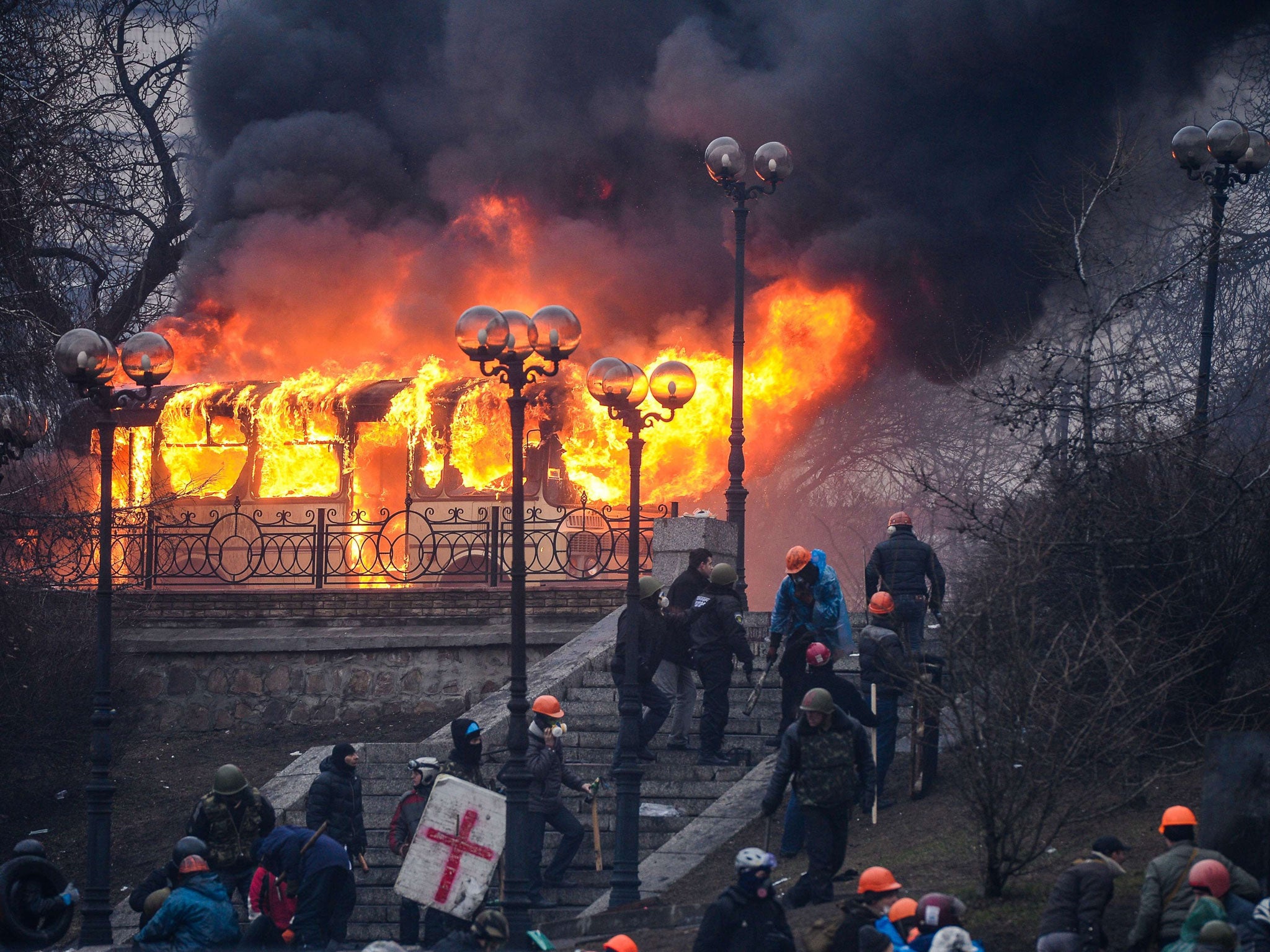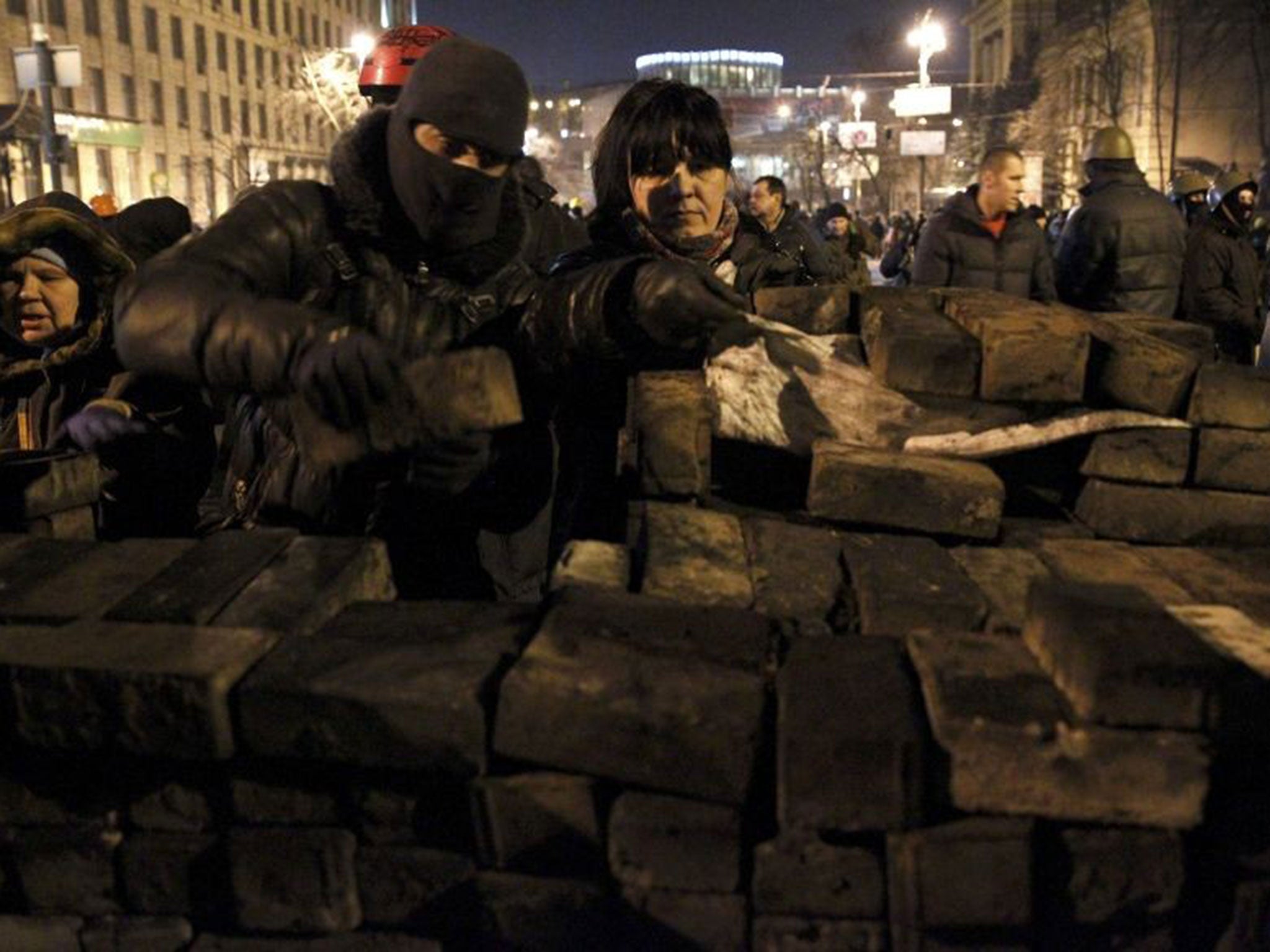Ukraine crisis: President Yanukovych and the opposition sign deal to hold early elections. But are they listening on the streets?
A ‘peace deal’ between opposition leaders and the President offers hope of an end to Ukraine’s bloody crisis. But the guns have yet to fall silent

Ukraine has taken a step back from the abyss with the signing of an agreement between the government and the opposition aimed at ending the strife which had threatened to tear the country apart.
The deal came after intense international pressure following days of violence leaving more than 70 people dead, hundreds injured and fears of a slide into civil war. Draconian emergency powers taken by the government of Viktor Yanukovych will be rescinded within 48 hours, a coalition administration will be formed in 10 days and fresh elections will be held by December – three months before they are scheduled.
In a day of dramatic developments, the country’s Parliament also voted to release Yulia Tymoshenko, the former Prime Minister, who is serving a seven-year jail sentence on charges of abuse of power. President Yanukovych, her implacable adversary, has refused repeated requests by the European Union to free her on medical grounds.
MPs, emboldened by Mr Yanukovych’s seeming climbdown, repealed, by 310 votes to 54, the offence under which Mrs Tymoshenko was convicted and chanted “Free Yulia!” “Free Yulia!” after the count. There was no immediate reaction from the government and it was not certain if and when she will be released; but the parliamentary initiative was being viewed as another symbolic blow against the power of the current ruling elite.
The deal on the constitution came after a night of tough negotiations organised by European Union foreign ministers, with warnings that failure to agree would lead to dire consequences. One of the brokers, Radek Sikorski of Poland, was heard telling a protest leader “If you don’t support this deal you will have martial law, the army will come in, you will all be dead.”
But, although most of the main opposition politicians endorsed the agreement, there was rejection from hard-line nationalists and street activists. Dmytro Yarosh, an official of the Right Sector movement maintained that Mr Yanukovych had to go: “The criminal regime has not yet realised the gravity of its evil-doing; we need justice for all those people killed”. Andriy Paruby, a commander of self-defence volunteers, insisted that any agreement was meaningless: “There’s a third power in Ukraine – I am talking about Russia. So Yanukovych can sign anything he likes, but the snipers could still get a different order.”

Gunfire broke out at the centre of the protest, Independence Square, soon afterwards; it was unclear who was shooting at whom. The police claimed: “Those taking part in mass disorder opened fire on officers and tried to burst through to the Parliament building”. Later armed police themselves burst into Parliament, Arseniy Yatsenyuk, an opposition leader reported, but had been forced out.
However, the mood among the thousands still gathered at Kiev’s Independence Square, or Maidan, was relatively relaxed, in sharp contrast to the fear and anger of the day before when they had to carry away the dead and injured, victims of live rounds fired by the police.

Read more:
The protesters kept their barricades up; the riot police were noticeable by their absence, the only officers in view a group who had defected from Lviv, in the strongly anti-Russian, pro-European Union west of the country. A group marched through, yellow and blue ribands, the national colours, tied on their sleeves, to applause from the crowd. “We’re Ukrainians, we’re with you,” one of the men in uniform shouted to renewed cheers. Flowers were placed around photographs of “martyrs”. One, 21-year-old Olesya Zhukovskaya, who on Thursday had tweeted, “I am dying” after being shot in the neck, had survived. “I am alive! Thank you to everyone who supported and prayed for me,” she tweeted yesterday.

Five miles from the Maidan, the sunlight was kept out by drawn curtains in the room where Andrei lay with a bloodied bandage over a gunshot wound to his shoulder. The 24-year-old teacher had been initially treated at the Hotel Ukraine, which was turned into an emergency ward; but he and his family decided it would be too much of a risk for him to go to a hospital.
“They [the authorities] know me. In an ordinary hospital they could easily pick me up. I have friends who have disappeared. I don’t want to join them,” he winced.
Andrei was in the apartment of a friend of the family. Another friend, Anichka, a doctor, had come to check on him. “Luckily it is a clean wound and it was not his head, or chest or neck. It’s lucky that Andrei is alive. But he cannot stay here for too long; there is danger of infection in a place which is not sanitised,” she pointed out.
But Andrei was the third injured person Anichka had visited at a private home; distrust of President Yanukovych’s security forces runs deep. But does not the new agreement include an amnesty? “You cannot trust the devil. He is just trying to buy time with this deal.”

The deal calls for the protesters to leave the buildings they had occupied and camps they had set up, as well as hand over their weapons. Yuriy Dovoshenko, who had been on Independence Square most days for a month, was adamant: “We will start leaving [public premises] when we are convinced that the regime actually means what it says; we have been let down by Yanukovych too many times in the past.”
“As for weapons, they can have this,” he continued, pointing at a wooden club he was carrying. “We can get the things necessary to defend the people when the time comes; we cannot allow them to shoot down people like animals as they had been doing.”
Oleksandr Yakimenko, the head of the security service, SBU, claimed that 1,500 firearms and thousands of rounds of ammunition had been recovered, but he acknowledged that arms depots had been emptied by protesters in many parts of the country. The police had been disarmed in centres in the west.
“Anyone who thinks this is all over and everyone will go home and forgive Yanukovych is a fool” said Mr Dovochenko. “We want to bring real changes to this country and, for that, we will fight if we have to.”
Join our commenting forum
Join thought-provoking conversations, follow other Independent readers and see their replies
Comments